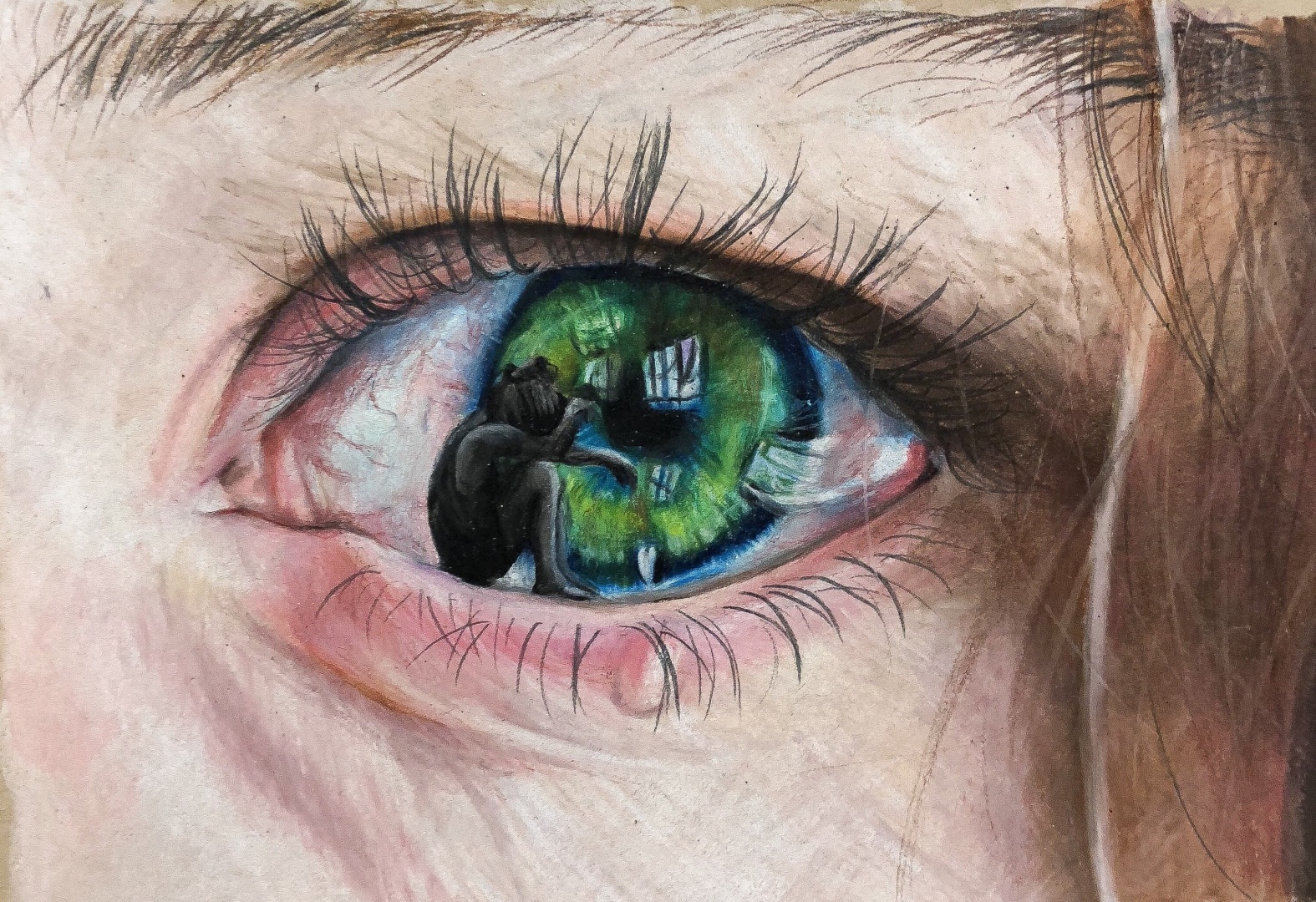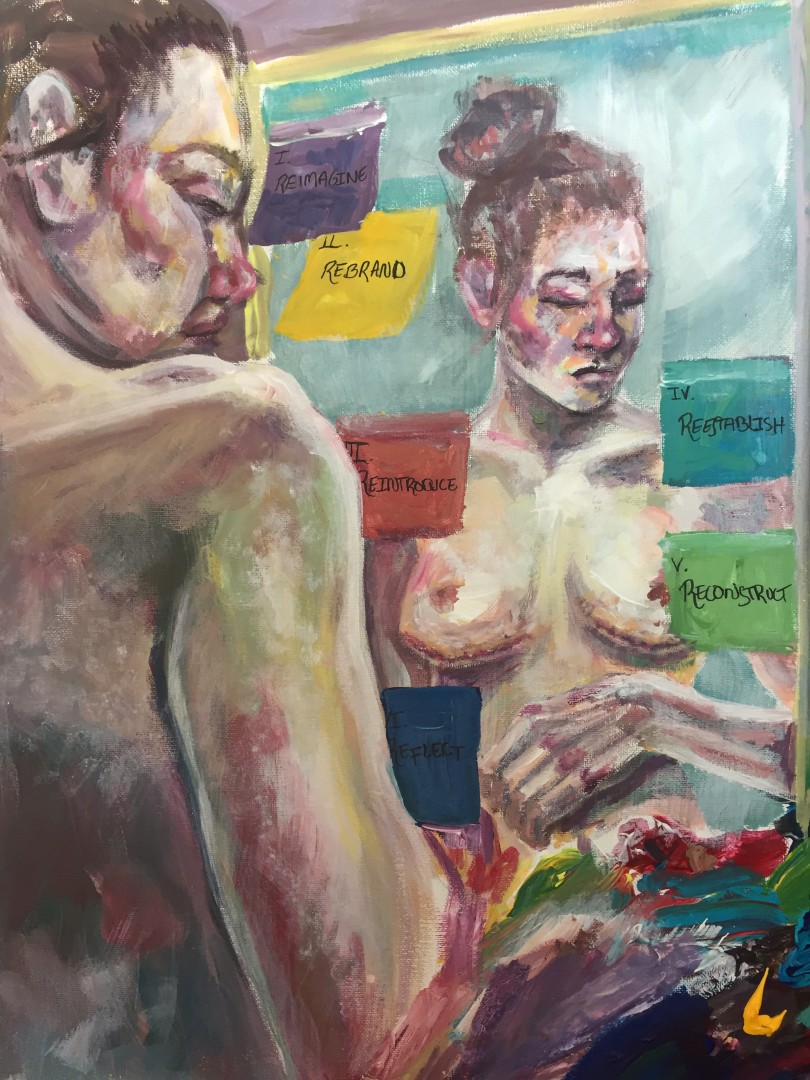Dear Reader,
Welcome to Issue 7!
My name is Grace Carroll, and I am one of MVMENT’s managing editors. When I became part of this magazine, almost a year ago, the entire team consisted of four people. I cannot possibly tell you what a privilege it has been to watch our community grow in the nine months since we published our first issue. This magazine, and the community it has created, has become everything we envisioned starting out, and so much more.
As a managing editor, my primary role is to manage writers, work with literary editors and run the editorial process for each literary submission. But over the course of the past year, my job has meant a lot more: I have worked to design our editing system, hired new team members and have been able to seriously shape the platform that MVMENT has become.
I have been able to watch MVMENT grow from an idea into a full-fledged, entirely student-run publication. We’ve had moments of genuine uncertainty and doubt: editors and writers miss deadlines, pieces get dropped, systems get restructured and so many other challenges have made us question whether or not this will work. But, thanks entirely to the dedication of our team, it has. Issues come out and are read, people submit their stories, we always find new writers, artists and creators.
I am continuously amazed by the breadth and talent of the writers, artists, designers, musicians and advocates who have joined our team. I can still vividly remember reading and editing the first few survivor stories MVMENT received; the voices we’ve been able to share over last year have fundamentally changed my understanding of our world, and I hope, reader, they’ve had a similar effect on you. Although Issue 7 will be my last issue with MVMENT, I can sincerely say I am so excited to see everything that this magazine has yet to become.
Expanding our team of writers and artists has given us the ability to focus our recent issues on a different facet of gender and sexual equality. In response to the appointment of Brett Kavanaugh to the Supreme Court and the potential threat to abortion rights in America, we dedicated Issue 6 to the embattled history and current state of reproductive rights. This time, we’re focusing on the experience of being transgender or gender non-conforming in 2018.
Our writers and artists turned their attention to the state of transgender rights in the world today, or drew from their own intimate experiences to create pieces that we believe are informative and deeply impactful. What I have valued most about working for MVMENT is that, in the face of immense and often alarming developments in our society, this magazine serves as a platform for action. Sharing these pieces with you, with the intention to open your mind a little, shift your worldview, or even just make you think more deeply about these topics allows us to generate real cultural change.
A particularly significant catalyst for this issue was the breaking news this October that the Department of Health and Human Services, under the Trump administration, is preparing to codify a binary and discriminatory definition of gender into national law. Creating an unchangeable legal definition of gender as external sex at birth would strip all transgender or gender non-conforming people of critical anti-discriminatory protections. Policy makers claim to ground this decision in scientific certainty, apparently choosing to ignore the significant surge of scientific studies that prove the broad and non-binary nature of gender.
This change would effectively erase the identity of the 1.4 million Americans whose gender identity happens to be more complex than their assigned sex at birth. As our staff writer Janalie Cobb explores in her piece, “As A Cisgender Woman,” this policy move is one we should all be watching. This change may not affect you personally—it may not even affect anyone you know—but the precedents it sets should outrage all of us. Stripping the trans community of their legal legitimacy makes it easier to strip away the protections that took decades of trans advocacy efforts to obtain.
In the past two months, we have been working diligently to restructure our internal board, a long-needed step for us to enter our next phase of growth. In addition, we are streamlining our application process, for those who are interested in getting involved with us in a board position, which can be expected underneath the “join” section of our Getting Involved page within the next few weeks. In the meantime, those interested in Getting Involved with us or who have questions about our board, should email our Editor-in-Chief at vkurup@mvmentmag.com. Our videography group has also been hard at work, and we are excited to bring video onto our platform. While we are planning on featuring our first video in Issue 8, follow us on Instagram, Facebook, and Twitter for a sneak peek within the next week.
I am so grateful for everything this community has taught me, every story that has been shared with me and everyone who joined our team because they felt the same need to try and change things, even in the slightest ways. I am also deeply grateful for you, reader, and I believe that by being here and reading this issue, you are making an active choice to try and improve our world.
And so, as my final message as managing editor to everyone who allows this magazine to exist, I want to say: do not slow down. Don’t stop trying or fighting or working to make your world better. Don’t stop advocating for the people you love and respect, and do not falter in your efforts to make people listen to what you have to say.
Read. Engage. Discuss. The culture we live in can only survive in silence.
Sincerely (and thank you!),
Grace Carroll
MVMENT Magazine
Managing Editor







